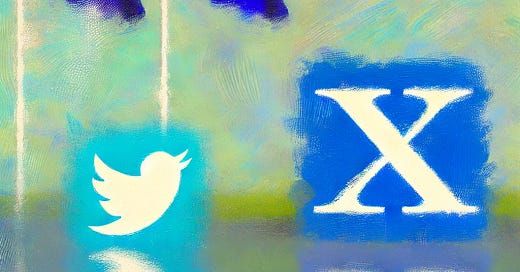EU Accuses X of Breaching Digital Content Rules; Musk Alleges "Secret Deal" Offer
Overview of Accusations
The European Union has levelled serious allegations against the social media platform X, previously known as Twitter, claiming that it violates the newly enforced Digital Services Act (DSA). These accusations, centered around the platform's transparency and accountability practices, mark a significant development in the EU's regulatory oversight of tech companies. The allegations have elicited strong comments from Elon Musk, the tech-billionaire owner of X.
Details of the Breach
According to the European Commission, X's use of blue checkmarks or ticks, which were modified to be purchasable post Elon Musk's acquisition, are misleading. These checkmarks, originally symbols of verified identity reserved for public figures and celebrities, are now seen as deceptive. The EU argues this undermines the ability of users to make informed decisions regarding the authenticity of accounts, potentially affecting public discourse and trust.
Musk's Counterclaims
Elon Musk responded to the EU's accusations with a strong rebuttal, alleging that the European Commission proposed a secretive and arrangement to settle the case, sans a fine, which he refused, unlike other major internet players. Musk claims this refusal has led to the current charges against X. He asserts that the accusations are unfounded and has vowed to contest them vigorously in court.
EU Commission's Response
The European Commission swiftly denied Musk's allegations of any secret deal. Thierry Breton, the European Commissioner, clarified that there was no clandestine agreement offered to X. He emphasized that the legal proceedings and regulatory measures are carried out transparently according to EU laws. Breton's response underscores the EU's commitment to its regulatory framework and its application to all entities equally.
Belligerent as ever, Elon Musk Tweeted in rebuttal: “We look forward to a very public battle in court, so that the people of Europe can know the truth.”
Potential Consequences for X
Should X fail to address the violations to the satisfaction of the European Commission, it could face penalties up to 6% of its annual global turnover. This case highlights the stringent requirements under the DSA, which mandates comprehensive transparency in digital advertising and stricter controls on content moderation practices.
Broader Implications
The ongoing investigation into X's practices also touches on broader concerns regarding the spread of misinformation and the effectiveness of content moderation tools like Community Notes. Other major platforms such as TikTok, AliExpress, and Meta are also under scrutiny, indicating a widespread regulatory focus on social media's role in public discourse and safety.
Summing Up
This case marks a critical juncture in the interactions between major tech companies and European regulators. The results of this legal battle may establish precedents for the operations of digital platforms within the EU, shaping international debates about the interplay between free speech, platform responsibility, and user safety in the digital realm. This potential battle emerges against a backdrop where X is increasingly viewed as a credible news source, especially evident following the failed assassination attempt on Donald Trump on 13th July.
Meanwhile, many users express frustration with Elon Musk, the self-proclaimed advocate of free speech, for not providing sufficient visibility to users' tweets, even among their own followers. Whether one admires or opposes him, neither Elon Musk nor X can be disregarded in the ongoing discourse about digital media's role and influence.




